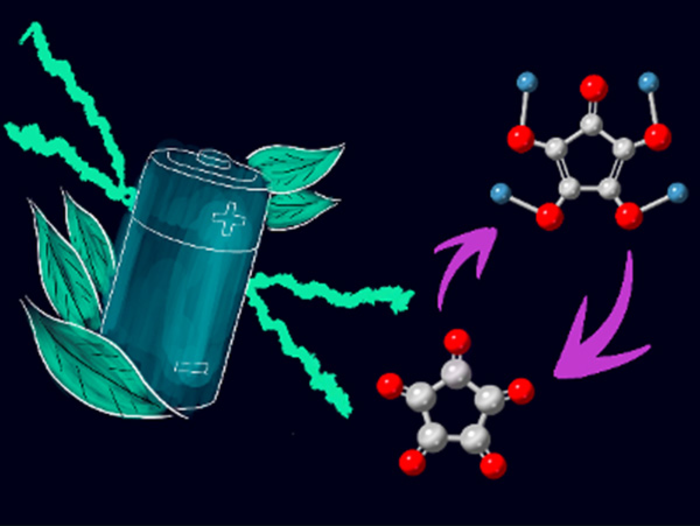Organic lithium-ion batteries one step closer to becoming reality

In addition, organic batteries have greater theoretical capacities than conventional lithium-ion batteries because their use of organic materials renders them lightweight. Most reported organic batteries to date, however, possess a relatively low (1-3V) working voltage. This means that increasing organic batteries’ voltage will lead to higher energy density batteries.
Knowing this, the Tohoku University and UCLA groups set up to study croconic acid and found that when used as a lithium-ion battery cathode material, it maintains a strong working voltage of around 4 V.
According to the scientists, croconic acid has five carbon atoms bonded to each other in a pentagonal form, and each of the carbons is bonded to oxygen. It also has a high theoretical capacity of 638.6 mAh/g, which is much higher than the conventional lithium-ion battery cathode materials (LiCoO2 ~ 140 mAh/g).
“We investigated the electrochemical behaviour of croconic acid in the high-voltage range above 3 V using theoretical calculations and electrochemical experiments,” Hiroaki Kobayashi, co-author of the study, said in a media statement. “We discovered that croconic acid stores lithium ions at roughly 4 V, giving a very high theoretical energy density of 1949 Wh/kg, which is larger than most inorganic and organic lithium-ion batteries.”
Although the theoretical capacity was not achieved in this study, the researchers are optimistic this can be enhanced by the development of stable electrolytes at high voltage and chemical modifications to croconic acid. Since most electrolytes cannot stand for such a strong working voltage of croconic acid, developing new electrolytes is vital.




